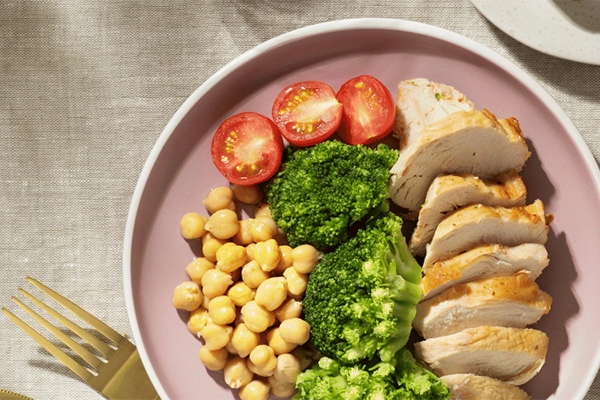Topics
What are Micronutrients?
To understand the basis and importance of nutrition and nutrients, click here. You can also read up about macronutrients here.
We need micronutrients in miniscule quantities compared to macronutrients. Hence the term ‘micro’. Micronutrients are vitamins, minerals, and trace elements needed by our body to produce enzymes, hormones, and other substances that are essential for normal growth and development.
Vitamins
Vitamins strengthen our immune system, aid in blood clotting, and growth development. Research suggests that vitamin C intake can reduce the risk of breast cancer, whereas vitamin A intake can reduce the risk of prostate cancer. Vitamins C and E have also been found to reduce the risk of Alzheimer’s disease. Experts suggest that more studies do need to be carried out.
Water-soluble vitamins (vitamins B and C)These vitamins dissolve in water. Hence, they are not retained in our bodies.
Some water-soluble vitamins include:
- Vitamin B1 (Thiamine) is necessary for energy metabolism. Foods rich in Vitamin B1 include chicken, beef, oranges, black beans, and sunflower seeds.
- Vitamin B2 (Riboflavin) is involved in enzyme processes and the metabolism of macronutrients. Foods rich in Vitamin B2 include bread, dairy products, fish, and lean meat.
- Vitamin B3 (Niacin) is found in vegetables, dairy, lean meat, and eggs. Deficiency can cause dementia, diarrhoea, and dermatitis.
- Vitamin B6 (Pyridoxine) is involved in enzyme processes. Foods rich in Vitamin B6 include nuts, meat, and legumes.
- Vitamin B9 (Folic acid) is essential for DNA and RNA synthesis. Pregnant mothers are encouraged to take it as a supplement daily. Foods rich in Vitamin B9 include dark leafy vegetables (spinach, broccoli, asparagus), beans and folate-fortified foods.
- Vitamin B12 (Cobalamin) can be found in eggs and animal protein. Deficiency can cause anaemia, ‘pins and needles’ in your hands, and weakness.
- Vitamin C aids in collagen production, bone formation, and it is an important antioxidant. Foods rich in Vitamin C include guava, papaya, orange, and broccoli.
These vitamins cannot dissolve in water. Hence, our bodies store them in our liver and fatty tissues.
- Vitamin A is crucial for healthy eyes. Foods rich in Vitamin A include eggs, carrots, butter, and milk.
- Vitamin D is crucial for proper bone mineralisation. Foods rich in Vitamin D include liver, fish egg, cheese, and mushrooms.
- Vitamin E aids in the maintenance of healthy eyes and skin while boosting our body’s immune system. Foods rich in Vitamin E include nuts, wheat germ, and leafy green vegetables.
- Vitamin K is essential for blood clotting. Foods rich in Vitamin K include vegetable oils and green leafy vegetables such as spinach.
Minerals
Minerals are essential for maintaining good health. Your body utilises minerals for various functions, including maintaining healthy bones, brain, muscles, and heart. They are also necessary in the production of enzymes and hormones.
There are two types of minerals: macrominerals and trace elements.
Macrominerals- Required in more significant amounts
- Calcium, sodium, phosphorus, potassium, chloride, magnesium, and sulphur
- Required in smaller amounts. Nevertheless, they are equally as important
- Iron, manganese, cobalt, copper, zinc, iodine, fluoride, and selenium
Is my diet sufficient to supply my micronutrients needs?
Requirements for micronutrients vary between individuals depending on a range of factors such as age, gender, physical activity levels, and during different periods in life, including pregnancy, lactation, and sickness.
Adequate micronutrients intake through dietary can be achieved by consuming a diverse diet including foods fortified with micronutrients. Micronutrient-rich foods include whole foods such as fruit and vegetables, meat and dairy, pulses, seafood, nuts, and seeds.
Make an appointment at Pantai Hospitals
A nutritious and balanced diet is crucial for us. Nourishing ourselves with the right balance of nutrients and reducing our trans-fats and sugar intake is key to keeping ourselves happy and healthy!
If you have questions about your micronutrients intake and how to ensure having adequate nutrition in your daily diet, contact the team of dietitians at your nearest Pantai Hospital to receive professional dietary advice to help kickstart your health journey.
To make an appointment for health screening, please contact the health screening centre at the Pantai Hospital nearest to you.
Pantai Hospitals have been accredited by the Malaysian Society for Quality in Health (MSQH) for its commitment to patient safety and service quality.
References
- Tackling Micronutrient Deficiencies: Causes and solutions. Available at https://www.krinstitute.org/assets/contentMS/img/template/editor/Tackling%20Micronutrient%20Deficiencies_Presentation%20Slides.pdf [Accessed on 5 August 2022]
- Recommended Nutrient Intakes for Malaysia. Available at https://nutrition.moh.gov.my/wp-content/uploads/2017/05/FA-Buku-RNI.pdf [Accessed on 5 August 2022]







.webp?sfvrsn=9f42ecac_9)
.webp?sfvrsn=2984d0c3_9)



